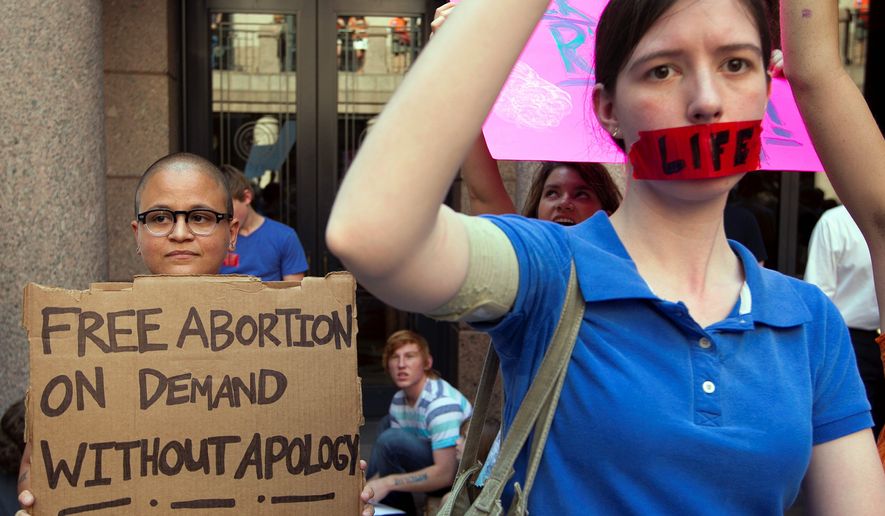The U.S. Supreme Court put two abortion-regulating provisions on hold Monday while Texas abortion clinics prepare their appeal to the justices.
By a 5-4 majority, Supreme Court justices agreed to stay the provisions in Texas’ HB 2 that were set to go into effect Wednesday.
The order will permit Whole Woman’s Health and other abortion clinics and doctors to continue to operate as they appeal for a review of their lawsuit trying to overturn the Texas abortion regulations.
The high court’s order “protected our three reproductive health clinics in West Texas and the Rio Grande Valley from shutting their doors,” said Amy Hagstrom Miller, president and chief executive of Whole Woman’s Health.
Whole Woman’s Health and other clinics say they cannot comply with the Texas law, which says abortion clinics must meet the same physical plant standards as ambulatory surgical centers (ASC) and also requires abortionists to have local hospital-admitting privileges.
Pro-choice advocates say the law will leave the state with nine abortion clinics, all clustered in a few metropolitan areas across the sprawling state. Texas previously had more than 40 abortion clinics.
Pro-life advocates were disappointed that the high court chose to let abortions continue.
The Texas law contains “sensible and ordinary medical precautions,” said Lila Rose, president and founder of Live Action. “We look forward to the day that both the legislature and the courts use their power to protect the most vulnerable among us.”
The Supreme Court “was swayed, not for the first time in a week, by illogical arguments,” said Kristan Hawkins, president of Students for Life of America.
“The abortion industry cares only for their bottom line, and women and their prenatal children are merely dollar signs in their business cycle,” she said.
The American Civil Liberties Union (ACLU), however, said the justices correctly offered relief to women in Texas, as the law’s provisions are either “medically unnecessary” or require “prohibitively costly renovations.”
Supporters of the regulations counter that abortion clinics should meet ASC standards to protect women; an abortion facility elsewhere, for instance, did not have walls wide enough to permit emergency responders to come in with their equipment. The hospital-admitting privileges are needed to ensure a continuum of care for women who have abortion-related emergencies, supporters say.
The Texas abortion clinics and doctors, represented by the Center for Reproductive Rights, made their case to the 5th U.S. Circuit Court of Appeals, but lost. The appellate judges also recently declined to stay their ruling, leaving the law to take effect July 1 — and prompting the emergency appeal to the Supreme Court.
The high court’s Monday order said the stay was in effect, pending the timely filing of a request for review. Should that request for review be denied, “this stay shall terminate automatically.”
The five justices supporting the Texas stay were Justices Anthony M. Kennedy, Ruth Bader Ginsburg, Stephen G. Breyer, Sonia Sotomayor and Elena Kagan. The justices who would have denied the application were Chief Justice John G. Roberts Jr. and Justices Antonin Scalia, Clarence Thomas and Samuel A. Alito Jr.
• Cheryl Wetzstein can be reached at cwetzstein@washingtontimes.com.




Please read our comment policy before commenting.